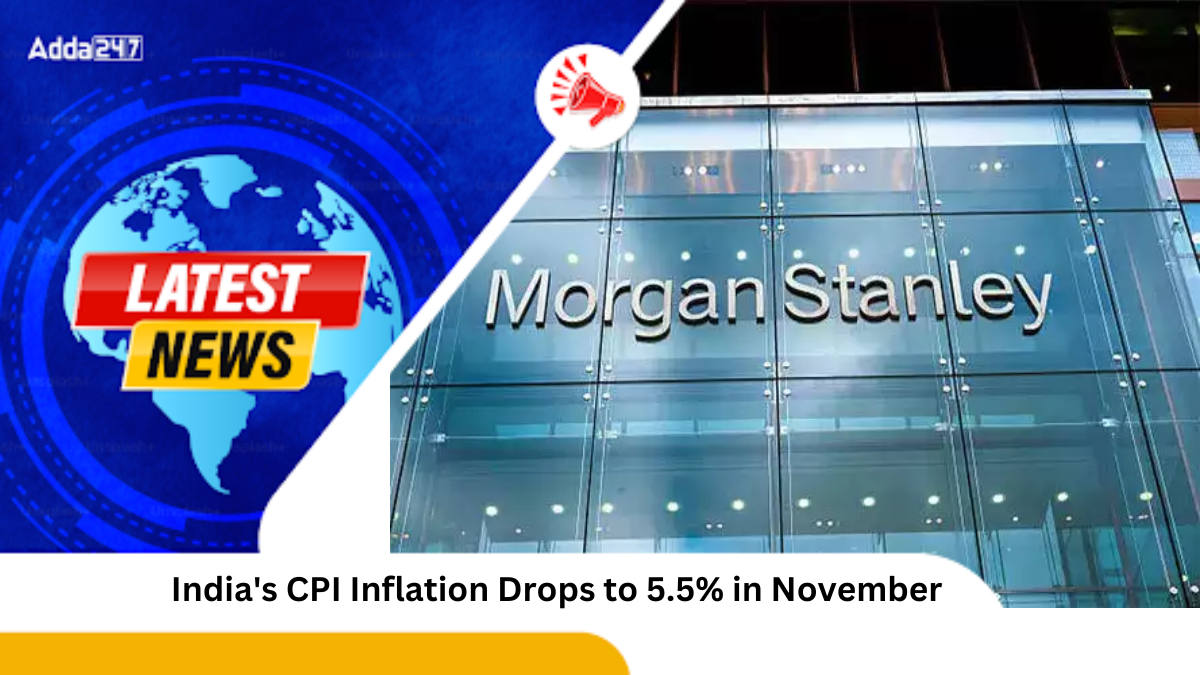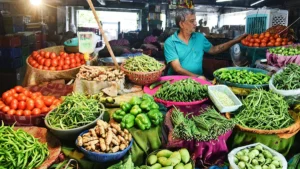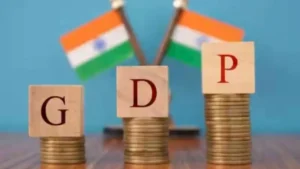India’s retail inflation is projected to have fallen to 5.53% in November, down from a 14-month high of 6.21% in October, primarily driven by moderating vegetable prices. The decline reflects a slowdown in core inflation, providing much-needed relief to households impacted by soaring food costs in recent months. While food prices, particularly vegetables, remain a concern, the Reserve Bank of India’s (RBI) steady interest rates suggest a cautious approach towards managing inflation amid economic slowdowns, according to a recent report by Morgan Stanley.
Key Drivers Behind the Decline in Inflation
The main factor behind the easing of inflation is a decline in vegetable prices, particularly tomatoes, which had seen a sharp rise in October, pushing CPI inflation to a 14-month peak. The arrival of fresh produce and a seasonal drop in vegetable prices have significantly slowed down the pace of food price increases. Additionally, a reduction in edible oil prices, which had surged following import duties imposed in September, also played a role in stabilizing inflation.
Core Inflation Steady Despite Food Price Volatility
Core inflation, which excludes volatile items like food and fuel, is expected to have remained steady at 3.7% in November, suggesting that underlying domestic demand pressures are stable. Economists point out that the drop in food price inflation, though significant, is not entirely driven by weather conditions, but also by easing factors like farm input cost inflation and a slowdown in food demand.
RBI’s Approach and Economic Outlook
Despite moderating inflation, the RBI held interest rates steady, signaling its focus on managing price stability in a challenging economic environment. The central bank recently downgraded its growth forecast for FY24 to 6.6%, citing food inflation concerns. With inflation likely easing, the RBI might find more room to maneuver in future policy decisions, offering some relief to consumers and businesses facing rising costs.
Seasonal Factors at Play
The seasonal nature of vegetable prices is a significant factor in the recent decline in inflation. Vegetable price inflation, which had spiked to 42% year-on-year in October, is estimated to have dropped to 27% in November. This is largely due to a reduction in tomato prices, which had seen an explosive rise in October, pushing up food inflation.
Outlook for the Future
Economists predict that if this trend continues, inflation could stabilize in the coming months, offering further relief to Indian households. The Union Bank of India also forecasts a slight dip to 5.4% in November, underlining the broader consensus of easing inflation driven by a seasonal decline in food prices. This presents a more optimistic outlook for consumers and policymakers alike, as the central bank may get more flexibility in adjusting its monetary policy.
Summary of the news
| Why in News | Key Points |
|---|---|
| India’s CPI Inflation Likely Eased to 5.53% in November 2024 | – Retail inflation is expected to fall from 6.21% in October to 5.53% in November. – The decline is due to moderating vegetable prices, particularly tomatoes. |
| Moderating Vegetable Prices | – Vegetable price inflation decreased from 42% in October to 27% in November. – Fresh produce arrivals helped reduce vegetable prices. |
| RBI’s Role | – RBI maintained interest rates despite slowing economic growth. – Focus remains on price stability with inflation control measures. |
| Core Inflation | – Core inflation is expected to hold steady at 3.7% in November, indicating stable domestic demand. |
| Other Factors Affecting Inflation | – Stabilization of edible oil prices after import duties were imposed. – Easing of farm input cost inflation and food demand expected to reduce food inflation further. |
| Previous Inflation Levels | – Inflation in October 2024 was at a 14-month high of 6.21%. – Forecasted inflation for November 2024 ranged between 5.00% and 6.10%. |
| RBI Economic Growth Forecast | – RBI revised its growth forecast for FY24 down to 6.6% from 7.2%. – Inflation forecast for FY24 increased to 4.8% from 4.5%. |
| WPI Inflation | – Wholesale Price Index (WPI) inflation is expected to have fallen to 2.20% in November from 2.36% in October. |



 India’s Retail Inflation at 2.75 Percent...
India’s Retail Inflation at 2.75 Percent...
 India Revises CPI Base Year to 2024: Wha...
India Revises CPI Base Year to 2024: Wha...
 Goldman Sachs Turns Bullish on India: Wh...
Goldman Sachs Turns Bullish on India: Wh...








